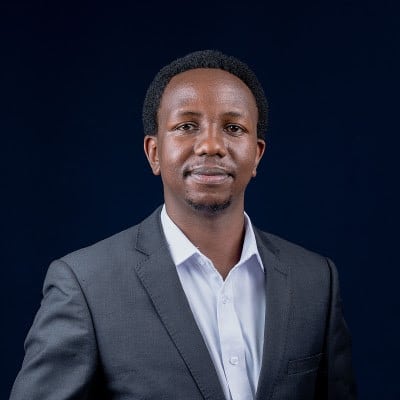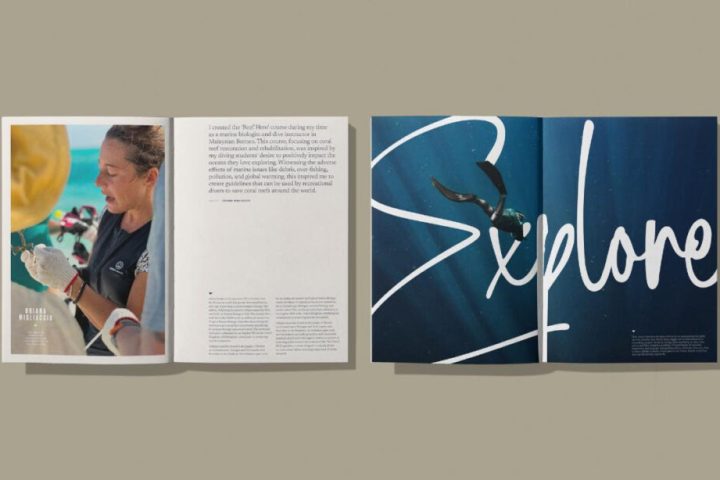
· Novartis and Medicines for Malaria Venture (MMV) announce decision to move to Phase 3 study for novel non-artemisinin combination to treat uncomplicated malaria
· This novel combination also contains an optimized formulation of lumefantrine, which allows it to be given once daily versus the usual twice-daily administration
Join our WhatsApp Channel· As the world faces emerging resistance to current malaria treatments, new medicines are needed to continue the fight toward elimination
BASEL, Switzerland,23 November 2022,-/African Media Agency (AMA)/- As the threat of resistance to current malaria treatments grows1,2, Novartis and MMV announce the decision to progress ganaplacide/lumefantrine- solid dispersion formulation (SDF) into Phase 3 development for the treatment of patients with acute uncomplicated malaria due to Plasmodium falciparum.
Ganaplacide is a novel agent with a new mechanism of action, which is combined with a new formulation of lumefantrine optimized for once-daily dosing. This combination has the potential not only to clear malaria infection, including artemisinin-resistant strains, but also to block the transmission of the malaria parasite. The medicine is being developed with scientific and financial support from MMV and their partners.
As previously announced, a Phase 2 open-label, randomized controlled study was conducted in 524 adults and children with acute uncomplicated malaria due to Plasmodium falciparum infection. The ganaplacide/lumefantrine-SDF combination met the primary objective in both adults and children. In patients who received a once-daily dose of ganaplacide/lumefantrine-SDF during 3 days, response to treatment was similar to the rate observed in patients who received twice-daily artemether-lumefantrine control therapy during 3 days.
Planned to start in 2023, one large Phase 3 pivotal trial will compare the efficacy of ganaplacide/lumefantrine-SDF to the current ‘gold standard’ artemether-lumefantrine. The trial will be conducted in collaboration with the WANECAM 2 consortium, and will include partner clinical sites in Burkina Faso, Mali, Gabon and Niger as well as other sites in sub-Saharan Africa. Both Phase 2 and 3 studies receive funding from the European and Developing Countries Clinical Trials Partnership (EDCTP), which is supported by the European Union.
“The emergence of artemisinin resistance demands urgent action to develop new antimalarials. We need non-artemisinin-based medicines with novel mechanisms of action against resistant parasites, and simple, easy-to-follow dosing schedules to help increase treatment adherence,” said Dr Sujata Vaidyanathan, Head Global Health Development Unit, Novartis. “The earlier we have new compounds and the faster the world adopts them, the better chance we stand of beating resistance.”
“We are increasingly seeing parasites with decreased sensitivity to artemisinin, even in Africa,” said Dr Timothy Wells, Chief Scientific Officer, MMV. “If the Phase 3 trial is successful, this new combination will increase the number of options available to countries and help save the lives of children at risk of this devastating disease.”
In August 2022, the US Food and Drug Administration (FDA) granted Fast Track Designation and Orphan Drug Designation for the combination of ganaplacide and lumefantrine-SDF for the treatment of acute, uncomplicated malaria.
Plasmodium falciparum malaria is primarily treated with artemisinin-based combination therapies (ACTs) such as artemether-lumefantrine. ACTs are still highly effective and well tolerated. Novartis introduced the first fixed-dose combination ACT in 19993 and has since delivered more than 1 billion courses of antimalarial treatment, largely at no profit. Together with MMV, Novartis developed a taste-masked dispersibleformulation of Coartem for children, which has now been used to treat more than 450 million children, mainly in Africa. However, the increased frequency by which parasites with a slower response to artemisinin are observed in some parts of Eastern Africa (Rwanda, Uganda, and the Horn of Africa) points to an urgent need to develop a new non-artemisinin class of antimalarials to avoid a return to the high levels of childhood mortality last seen in the 1990s.
Distributed by African Media Agency (AMA) on behalf of Novartis
Notes for editors
According to the latest World Malaria Report, released in December 2021, there were an estimated 241 million cases of malaria and 627,000 resulting deaths worldwide in 2020.1 This represents about 14 million more cases in 2020 compared to 2019, and 69,000 more deaths. Approximately two-thirds of these additional deaths (47,000) were linked to disruptions in the provision of malaria prevention, diagnosis and treatment interventions caused by the COVID-19 pandemic.
Ganaplacide is the result of a Wellcome Trust, Medicines for Malaria Venture (MMV) and Singapore Economic Development Board supported joint research program with the Novartis Institute for Tropical Diseases, the Genomics Institute of the Novartis Research Foundation, and the Swiss Tropical and Public Health Institute. The research program aimed to discover the next generation of antimalarial drugs.
In 2022, Novartis reaffirmed its commitment to malaria R&D at the Kigali Summit on Malaria and Neglected Tropical Diseases, announcing an investment of USD 250 million to advance research and development for malaria and neglected tropical diseases over 5 years. This includes next-generation antimalarials and a new formulation of artemisinin-lumefantrine for babies under 5kg with malaria.
WANECAM 2 (West African Network for Clinical Trials of Antimalarial Drugs, second edition), is a ten academic organizations consortium based in Africa (Burkina Faso, Gabon, Mali and Niger) and Europe (England, France, Germany, The Netherlands and Sweden). The Network collaborates with Novartis and MMV. The consortium, which is funded by the EDCTP aims to accelerate the development of the ganaplacide/lumefantrine combination for the treatment of uncomplicated malaria by conducting clinical trials in four countries in West and Central Africa. Further, the project also includes activities such as training and infrastructure development to support antimalarial drug development. Find out more at https://www.wanecam.org
About Novartis
Novartis is reimagining medicine to improve and extend people’s lives. We deliver high-value medicines that alleviate society’s greatest disease burdens through technology leadership in R&D and novel access approaches. In our quest to find new medicines, we consistently rank among the world’s top companies investing in research and development. About 108,000 people of more than 140 nationalities work together to bring Novartis products to nearly 800 million people around the world. Find out more at https://www.novartis.com
Novartis is on Twitter. Sign up to follow @Novartis at https://twitter.com/novartisnews
For Novartis multimedia content, please visit https://www.novartis.com/news/media-library
For questions about the site or required registration, please contact media.relations@novartis.com
About MMV
Medicines for Malaria Venture (MMV) is a leading product development partnership
(PDP) in the field of antimalarial drug research and development. Its mission is to reduce the
burden of malaria in disease-endemic countries by discovering, developing and facilitating
delivery of new, effective and affordable antimalarial drugs.
Since its foundation in 1999, MMV and partners manage the largest portfolio of antimalarial
R&D and access projects ever assembled, have brought forward 12 new medicines and assumed the access stewardship of a further two. Almost 3 million lives have
been saved by these MMV co-developed medicines. MMV’s success is based on its extensive
partnership network of around 150 active partners across the world including from the pharmaceutical industry, academia and endemic countries.
MMV’s vision is a world in which innovative medicines will cure and protect the vulnerable and under-served populations at risk of malaria, and help to ultimately eradicate this terrible
disease.
For more information, please visit www.mmv.org
Follow us on social media: Twitter | LinkedIn | YouTube | Facebook
References
[1] World Health Organization, World Malaria Report 2020. Available at: https://www.who.int/teams/global-malaria-programme/reports/world-malaria-report-2020
2 B. Balikagala, N. Fukuda, M. Ikeda, O.T. Katuro, S.I. Tachibana, M. Yamauchi, et al., (2021) Evidence of artemisinin-resistant malaria in Africa N. Engl. J. Med., 385 (13) pp. 1163-1171. Available at: https://www.nejm.org/doi/full/10.1056/NEJMoa2101746
3 Premji ZG. Coartem: the journey to the clinic. Malar J. 2009 Oct 12;8 Suppl 1(Suppl 1):S3
Novartis Media Relations
E-mail: media.relations@novartis.com
Neil Henderson
Novartis External Communications
+41 79 361 28 69 | neil.henderson_ext@novartis.com
Julie Masow
Novartis US External Communications
+1 862 579 8456 | julie.masow@novartis.com
Arzum Ustun
Novartis Global Health Communications
+41 79 108 53 14 | arzum.ustun@novartis.com
Paul Barasa
Novartis Sub-Saharan Africa Communications
+254 71 970 3195 | paul.barasa@novartis.com
Novartis Investor Relations
Central investor relations line: +41 61 324 7944
E-mail: investor.relations@novartis.com
Central America
Samir Shah +41 61 324 7944
Nicole Zinsli-Somm +4 16 132 43809
Isabella Zinck +41 61 324 7188
North America
Sloan Simpson +1 862 345 4440
Alina Levchuk +1 862 778 3372
Parag Mahanti +1 973-876-4912
MMV Communications
Elizabeth Poll
Director of Communications, MMV
+41 79 709 59 92
Source : African Media Agency (AMA)

















Follow Us